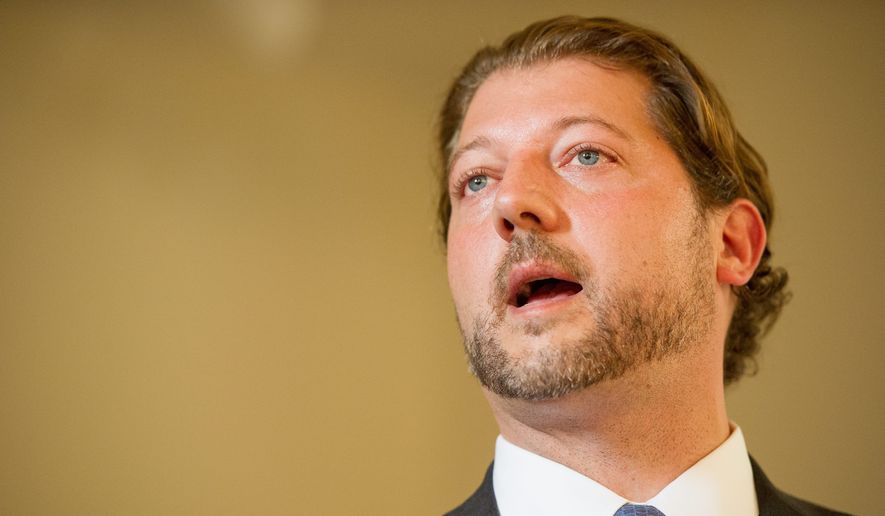The D.C. Council gave preliminary approval Tuesday to a $14 billion budget for fiscal 2018 that includes $100 million in tax cuts for businesses and wealthy residents.
Those tax cuts, set to begin Jan. 1, divided city lawmakers, as council member David Grosso offered two last-minute amendments to delay them and instead use the funds for education, affordable housing and other priorities.
“Today we have an obligation to step up for the poor, step up for the people who need an education in this city,” the at-large independent said at Tuesday’s council meeting.
One of Mr. Grosso’s amendments called for canceling a reduction to the local business franchise tax from 9 percent to 8.25 percent; the other would delay raising the city’s estate tax floor from $2 million to the federal level of $5.45 million. Both proposals were supported by council members Elissa Silverman and Brianne Nadeau.
“This is about making a choice,” said Ms. Silverman, at-large independent. “We’re voting for 100 very wealthy people and against thousands of our poorest families and children.”
The 13-member council rejected the estate tax amendment 9-4 and the business tax proposal 10-3. Trayon White, Ward 8 Democrat, backed the estate tax amendment but voted against canceling the business tax cuts.
Based on recommendations from a panel of experts led by former Mayor Anthony Williams, the cuts are part of a tax reform package the council enacted in 2014 are to be triggered only if the District’s revenues reach a certain threshold.
Council Chairman Phil Mendelson, one of the strongest supporters of the tax reductions, said the city shouldn’t punish businesses that were relying on the franchise tax cut, especially in the wake of a looming $15 minimum wage and the country’s most generous paid family-leave program being enacted last session.
“We can’t keep going back to the golden trough and keep hitting on [businesses]. That is wrong,” said Mr. Mendelson, at-large Democrat. “We’re creating instability and that is unwise and foolish to me.”
The most surprising opposition to the Grosso amendments came from Robert White, who has been a leading progressive voice in his first few months on the dais.
“I understand why it sounds good to residents to stop the tax cuts,” said Mr. White, at-large Democrat. “But we must be prudent with our finances. Consider that strong urban economies crumble when they can’t do advanced planning.”
Jack Evans, who heads the council’s finance committee, said the District has a more robust budget this year because of the success of city businesses, noting that the budget has grown by $5 billion over the past 10 years.
“We have a robust economy because we invested in our economy,” the Ward 2 Democrat said. “That $5 billion didn’t happen by chance.”
The full budget, which passed a first vote Tuesday, doesn’t deviate much from the plan Mayor Muriel Bowser proposed in April. Mr. Mendelson said about 98 percent of her budget is preserved.
But the funding fight over education did yield some big results. The per-pupil funding for the District’s public and charter schools will increase 3 percent, after education advocates chided Miss Bowser for underinvesting.
The mayor originally called for a 1.5 percent increase in per-pupil funds — less than the standard 2 percent hike and far below the 3.5 percent increase recommended by the D.C. Office of the State Superintendent for Education.
Affordable housing also got some help in the council’s revised budget. Lawmakers added $3.4 million in project- and sponsor-based Local Rent Supplement Program vouchers for units targeting low-income residents, and directed $4.5 million toward ensuring legal representation for all tenants facing eviction.
• Ryan M. McDermott can be reached at rmcdermott@washingtontimes.com.




Please read our comment policy before commenting.